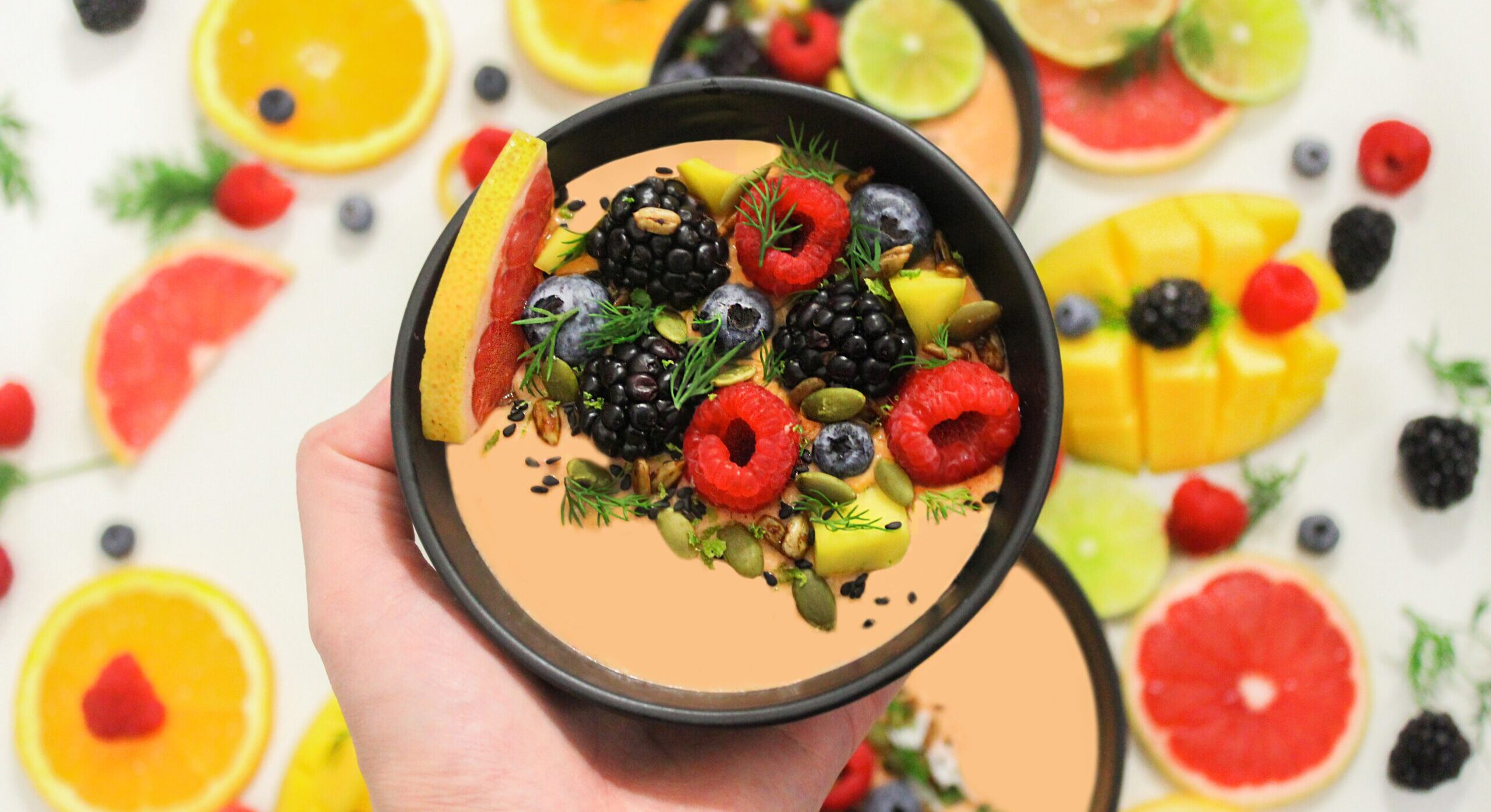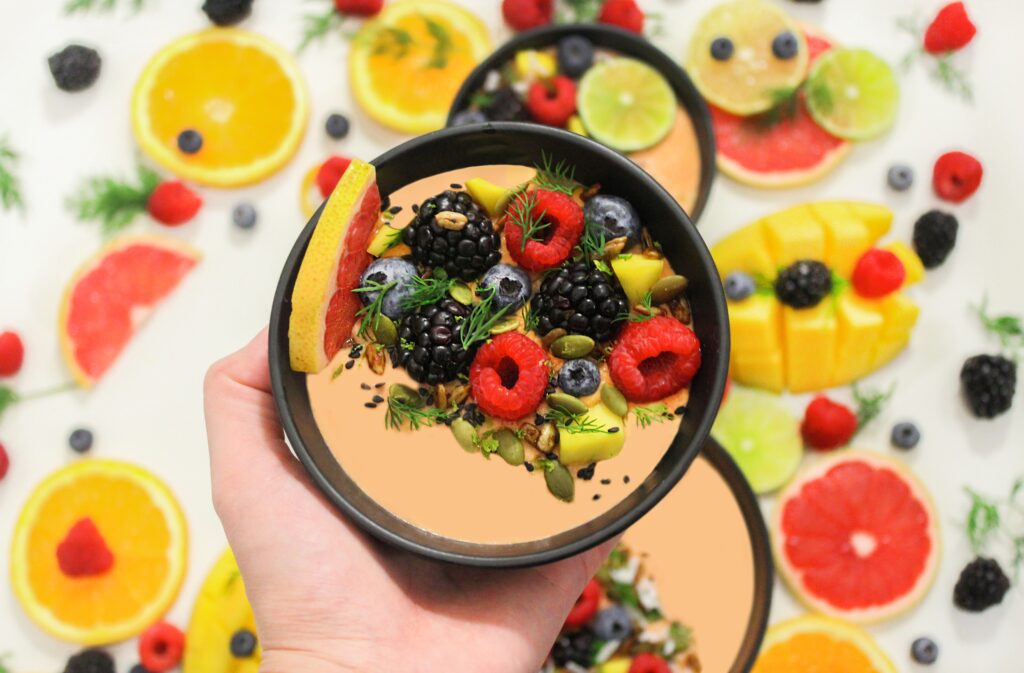CANCER SUPPORTAntioxidants & Cancer Prevention
Antioxidants have gained significant attention in recent years for their potential health benefits. These powerful compounds are believed to play a crucial role in protecting our bodies against to various diseases including cancer, cardiovascular disease, cognitive impairment, amongst others.
What are antioxidants?
Antioxidants are natural compounds found in a variety of foods, beverages, and supplements. Their primary function is to neutralize and counteract the damaging effects of free radicals, which are highly reactive molecules that can cause cellular damage and lead to various diseases.
When left unchecked, free radicals can initiate a chain reaction of oxidative stress, damaging cells, proteins, and DNA. Antioxidants encompass a wide range of substances, including vitamins (C, E, and A), minerals (selenium, zinc), and phytochemicals (carotenoids, flavonoids).
Antioxidants and cancer prevention
 Cancer arises from the accumulation of genetic mutations caused by oxidative damage by free radicals. Antioxidants scavenge free radicals, stabilize them, and prevent them from causing damage to cellular structures and DNA. Additionally, antioxidants activate various cellular defense systems that enhance DNA repair and protect against mutations.
Cancer arises from the accumulation of genetic mutations caused by oxidative damage by free radicals. Antioxidants scavenge free radicals, stabilize them, and prevent them from causing damage to cellular structures and DNA. Additionally, antioxidants activate various cellular defense systems that enhance DNA repair and protect against mutations.
Numerous scientific studies have explored the relationship between antioxidants and cancer prevention. Diets rich in antioxidants are associated with a lower risk of certain cancers such as lung, breast, colorectal, and prostate cancer. Antioxidants, such as carotenoids, polyphenols, and vitamins A, C, and E, exhibit anti-cancer properties by neutralizing free radicals, inhibiting tumor growth, and reducing inflammation.
Antioxidants and prevention of other diseases
Cardiovascular Health
Antioxidants, such as vitamin C, vitamin E, and flavonoids, have been linked to a reduced risk of heart disease by protecting against the oxidation of LDL cholesterol, inhibiting the formation of blood clots, and improving blood vessel function
Antioxidants, including flavonoids and vitamin E, have been associated with a lower risk of cognitive decline and neurodegenerative diseases, such as Alzheimer’s and Parkinson’s, by reducing oxidative stress and inflammation in the brain.
Aging and Longevity
Antioxidants help counteract the oxidative damage that accumulates with age, potentially slowing down the aging process and promoting longevity.
Embracing an Antioxidant-Rich Lifestyle
To reap the benefits of antioxidants, it is essential to adopt a diet rich in fruits, vegetables, whole grains, nuts, seeds, and legumes. These plant-based foods are abundant in antioxidants, offering a wide range of protective compounds.
The concept of “superfoods” emerged as researchers identified certain foods exceptionally high in antioxidants. Blueberries, spinach, kale, and other dark-colored berries and leafy greens became recognized for their exceptional antioxidant content. Other notable superfoods include green tea, cocoa, turmeric, and acai berries, which have become popular for their potential health-boosting properties.
While obtaining antioxidants from food sources is generally safe and beneficial, the same cannot be said for antioxidant supplements. Research suggests that high-dose antioxidant supplementation may not confer the same protective effects and, in some cases, may even have adverse effects (It is crucial to consult with a healthcare professional before considering antioxidant supplements.
The following is a list of some of the best antioxidant foods that you cann easily incorporate into your daily diet:
Berries
Berries, such as blueberries, strawberries, raspberries, and blackberries, are not only delicious but also rich in antioxidants. These colorful fruits are packed with anthocyanins, a type of flavonoid that gives them their vibrant hues and provides potent antioxidant properties. Enjoy a handful of berries as a snack, add them to your morning cereal or smoothie, or top your yogurt with a burst of antioxidant goodness.
Colorful Vegetables
When it comes to antioxidant-rich vegetables, think vibrant colors. Dark leafy greens like spinach and kale are excellent sources of antioxidants such as vitamins C, E, and beta-carotene. Additionally, red, orange, and yellow vegetables like bell peppers, carrots, and sweet potatoes contain carotenoids, which are powerful antioxidants that promote skin health, eye health, and immune function. Don’t forget to include a variety of colorful vegetables in your salads, stir-fries, and roasted vegetable medleys.
Nuts and Seeds
Nuts and seeds are not only delicious but also packed with antioxidants, healthy fats, and fiber. Almonds, walnuts, and pistachios are rich in vitamin E, while flaxseeds and chia seeds provide an excellent source of plant-based omega-3 fatty acids and lignans, both of which have antioxidant properties. Sprinkle a handful of nuts or seeds onto your salads, yogurt, or enjoy them as a satisfying snack.
Spice
Spices and herbs not only add flavor to your meals but also provide a wealth of antioxidants. Turmeric, a spice known for its vibrant golden color, contains curcumin, a potent antioxidant with anti-inflammatory properties. Cinnamon, cloves, and oregano are also high in antioxidants and can be easily incorporated into your cooking or sprinkled onto beverages like tea or smoothies.
Dark Chocolate
My personal favorite! Dark chocolate, specifically with a high percentage of cocoa (70% or higher), is a delightful treat that offers a significant dose of antioxidants. Dark chocolate contains flavonoids, including the powerful antioxidant catechins, which can support heart health and reduce inflammation. Enjoy a small piece of dark chocolate as an occasional treat and savor both its taste and antioxidant benefits.
Conclusion
In conclusion, antioxidants play a vital role in cancer prevention by counteracting oxidative stress and reducing the risk of DNA damage. Incorporating antioxidant-rich foods through a diverse and colorful diet is a practical and effective way to harness their cancer-preventive benefits. However, it’s important to remember that a well-balanced diet and a healthy lifestyle encompass more than just antioxidants. By adopting a holistic approach to cancer prevention, including regular physical activity, maintaining a healthy weight, and avoiding tobacco, we can maximize our efforts in safeguarding our health.
References:
Donaldson MS. Nutrition and cancer: a review of the evidence for an anti-cancer diet. Nutr J. 2004
Pisoschi AM, Pop A. The role of antioxidants in the chemistry of oxidative stress: A review. Eur J Med Chem. 2015 Jun 5;97:55-74 Dagfinn Aune, Plant Foods, Antioxidant Biomarkers, and the Risk of Cardiovascular Disease, Cancer, and Mortality: A Review of the Evidence, Advances in Nutrition, Volume 10, Supplement 4, 2019, Pages S404-S421,




